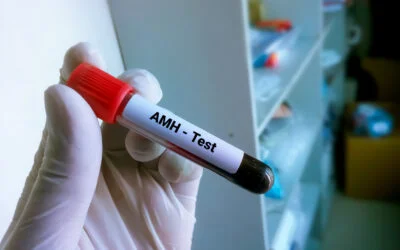Introduction:
Achieving natural conception can be a challenging journey, especially when faced with low Anti-Müllerian Hormone (AMH) levels. In this guide, we will explore what AMH is and how to assess its value.
What is AMH?
Anti-Müllerian Hormone (AMH) is a hormone produced by the ovaries that plays a crucial role in assessing ovarian reserve. Ovarian reserve refers to the quantity and quality of a woman’s eggs, indicating fertility potential. Low AMH levels can indicate a decreased ovarian reserve, making conception more challenging.
Assessing AMH Value:
Determining your AMH levels is a crucial step in understanding your fertility potential. A simple blood test conducted on specific days of your menstrual cycle can provide insights into your ovarian reserve. Consult with a fertility specialist to interpret the results and discuss potential strategies for conception.
Conception With Low AMH Levels:
While low AMH levels may present challenges, natural conception is still possible. Understanding your fertility window, optimizing lifestyle factors, and exploring natural ways to boost AMH levels can significantly enhance your chances of successful conception.
Supportive measures while trying for a pregnancy:
- Balanced Nutrition: Ensure a diet rich in antioxidants, vitamins, and minerals to support ovarian health.
- Regular Exercise: Engage in moderate exercise to promote overall well-being and optimize reproductive function.
- Adequate Sleep: Prioritize quality sleep to regulate hormonal balance, including AMH production.
- Stress Management: Practice stress-reducing techniques such as yoga and meditation to support reproductive health.
- Avoid Toxins: Minimize exposure to environmental toxins and pollutants that may negatively impact fertility.
Some of the Lifestyle Changes Include:
- Quitting smoking and limiting alcohol intake.
- Maintaining a healthy weight through a balanced diet and regular exercise.
- Managing pre-existing medical conditions that may affect fertility.
Supplements which can be taken while trying for a pregnancy
.Supplements: Consult with a healthcare professional about supplements like Coenzyme Q10 (CoQ10) and DHEA, which may support fertility.
Conclusion
Individuals grappling with fertility challenges, particularly those associated with low Anti-Mullerian Hormone (AMH) levels, are encouraged to seek the expertise of a qualified fertility specialist. Dr. S. Vyjayanthi, a distinguished professional in the field, stands out as a top fertility specialist in Hyderabad. With an impressive array of credentials including MD, DGO, DNB, MRCOG, MSC in Embryology from the UK, and CCT (Clinical Competence in Training) in the UK, Dr. Vyjayanthi brings a wealth of knowledge and experience to her practice. As a fertility specialist, she is well-equipped to assess and address various fertility issues, offering personalized and comprehensive solutions to help individuals and couples on their journey to parenthood. Seeking the guidance of a reputable fertility expert like Dr. S. Vyjayanthi can be a crucial step towards understanding and managing fertility issues, providing hope and support to those navigating the challenges of conception.
Frequently Asked Questions (FAQs):
- Can I conceive naturally with low AMH levels?
- Yes, it is possible. Understanding your fertility window and making lifestyle changes can improve your chances.
- How often should I monitor my AMH levels?
- Consult with your fertility specialist to determine the appropriate frequency for monitoring based on your individual circumstances.
- Are there specific fertility treatments for low AMH?
- Fertility treatments, such as in vitro fertilization (IVF), may be recommended. Discuss options with your healthcare provider.
- Can stress impact AMH levels?
- Yes, chronic stress may negatively affect reproductive hormones, including AMH. Managing stress is crucial for overall fertility.
- Is age a factor in low AMH levels?
- Yes, age is a significant factor. AMH levels naturally decline with age, reflecting a decrease in ovarian reserve.

